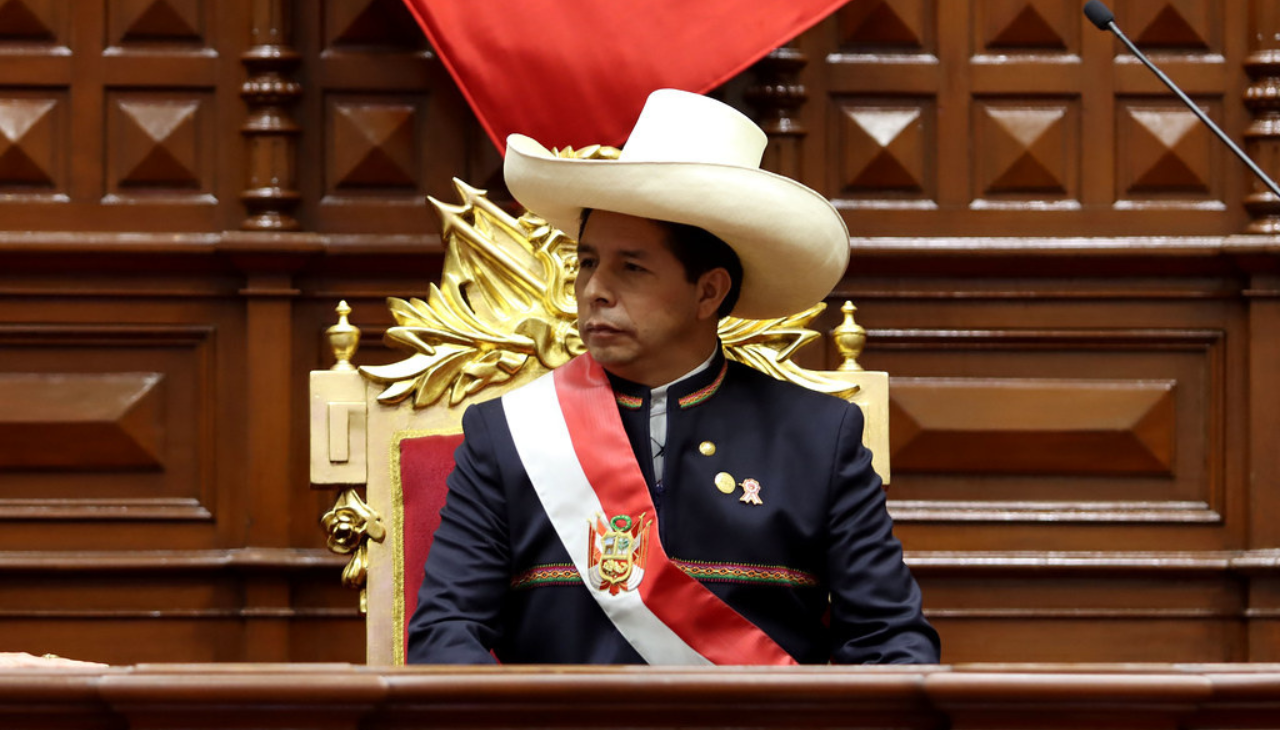
Political crisis in Peru: President impeached and detained
Pedro Castillo dissolved Congress and established an emergency government. How did Latin America react as Dina Boluarte was installed as the new president?
The members of Peru's Congress were scheduled to discuss the possibility of declaring the presidential office vacant starting at 3 p.m. Following President Pedro Castillo's decision to establish an exceptional state of emergency, Congress moved the session forward to 12:30 p.m. and dismissed the President, who shortly after appeared before the Police Prefecture in Lima and was arrested.
The situation adds another political crisis for Peru amid a fragile leadership, which has done a number on the country's stability in recent years. The coup de grace on Wednesday occurred when Castillo announced the dissolution of Congress and a call to elect another in less than nine months. He also decided to govern by decree and established a national curfew for the. The measure immediately caused the resignation of the ministers of Justice, Foreign Affairs, Economy and Labor and was rejected by Peru's Armed Forces and the Police.
After Castillo's removal, Vice President Dina Boluarte took office before Congress as president. In addition to being the first woman in the position in Peru, she will have the challenge of solving the crisis.
"I request a political truce to install a government of national unity. This high responsibility must be assumed by everyone," she said in her first message to the country.
She warned that "it is up to us to talk, dialogue, reach an agreement, something as simple as it is impracticable in recent months. I therefore call for a broad process of dialogue between all the political forces represented or not in Congress." Boluarte also condemned the attempted coup launched by Castillo, who she said did not "find an echo in the institutions of democracy and in the streets."
RELATED CONTENT
For its part, Peru's Prosecutor's Office announced that "the Public Ministry this afternoon directed the arrest of Pedro Castillo Terrones for the alleged crime of rebellion, regulated in article 346 of the Penal Code, for violating the constitutional order."
The international reaction
There were several pronouncements from across the world about the political crisis. The Organization of American States (OAS) convened an extraordinary session and a declaration from the Permanent Council was expected.
The strongest reaction was that of Andrés Manuel López Obrador, president of Mexico.
"We consider it unfortunate that, due to the interests of the economic and political elites, since the beginning of the legitimate presidency of Pedro Castillo, an atmosphere of confrontation and hostility has been maintained against him until it led him to make decisions that have served his adversaries to consummate their dismissal," he said.
In contrast, the Colombian government of Gustavo Petro called for dialogue. The Foreign Ministry pointed out that "the Colombian government expresses its concern about the political crisis in Peru, expresses its solidarity with the brotherly Peruvian people and calls on all political actors to dialogue to safeguard democracy." The government of Ecuador also expressed itself along the same lines, through the Ministry of Foreign Affairs, asking "to maintain the rule of law and democracy."
Before Castillo's removal, the U.S. Ambassador in Lima Lisa Kenna indicated that "the United States strongly urges President Castillo to reverse his attempt to shut down Congress and allow Peru's democratic institutions to function according to the Constitution."











LEAVE A COMMENT: